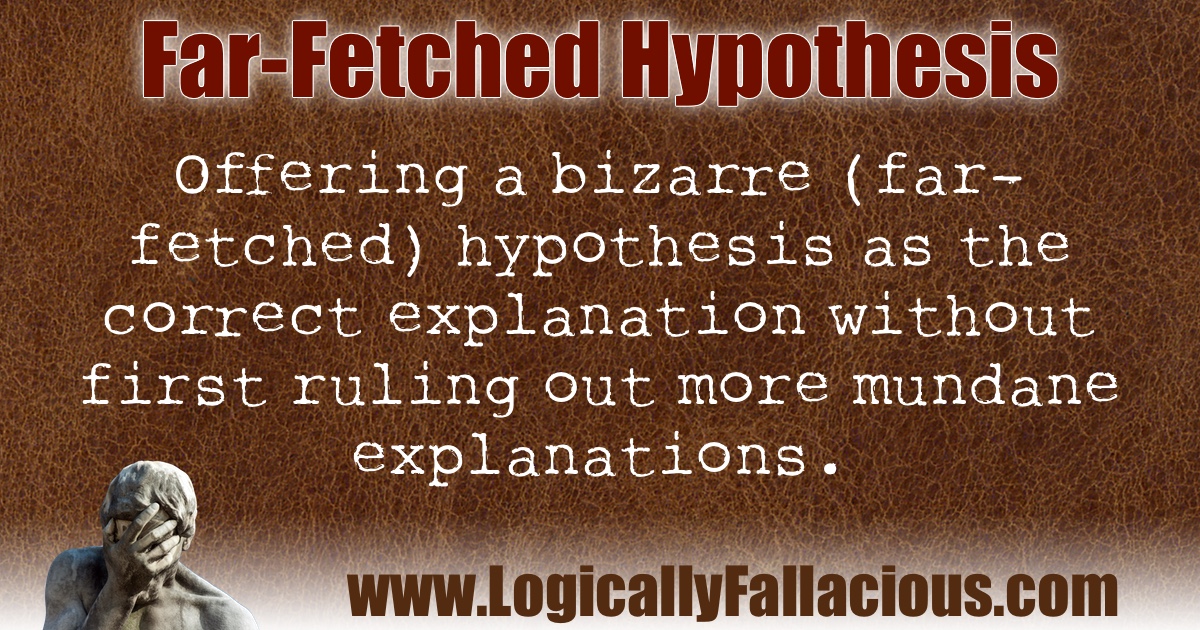Description: Offering a bizarre (far-fetched) hypothesis as the correct explanation without first ruling out more mundane explanations.
Logical Form:
Far-fetched hypothesis is proposed.
Mundane, probable hypotheses are ignored.
Example #1:
Seth: How did my keys get in your coat pocket?
Terrence: Honestly, I don’t know, but I have a theory. Last night, a unicorn was walking through the neighborhood. The local leprechauns did not like this intrusion, so they dispatched the fairies to make the unicorn go away. The fairies took your keys and dropped them on the unicorn, scaring the unicorn back from where he came. The fairies then returned your keys but accidentally put them in my coat pocket.
Explanation: When creating a hypothesis, there are infinite possibilities, but far fewer probabilities. Skipping over the probabilities is fallacious reasoning. We should start with the fact that Terrence is lying, then go from there. There are many theories between lying and the mythical creature caper theory.
Example #2:
The rainbow represents a special covenant or promise of protection from another worldwide flood. The rainbow's appearance to Noah may have been its first occurrence in the sky (Gen. 9:8-17). Typical raindrops of sufficient size to cause a rainbow require atmosphere instability. Prior to the Flood, weather conditions were probably very stable. (Donald B. DeYoung, Weather and The Bible, Grand Rapids, Eerdmans, 1992, pp. 112,113).
Explanation: This is part of an attempt by a young-earth creationist to make Genesis a literal, historical fact. Of course, the mundane explanation is that Genesis is not meant to be taken as a literal, historical fact -- it is not meant to be read as a science book.
Exception: If mundane explanations can be ruled out first, usually through falsification, then we can move on to more bizarre hypotheses.
Fun Fact: The Principle of Parsimony states that the most acceptable explanation of an occurrence, phenomenon, or event is the simplest, involving the fewest entities, assumptions, or changes.
